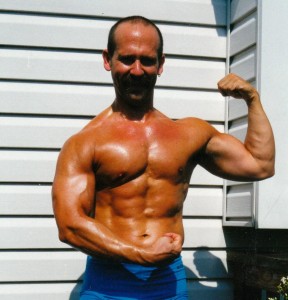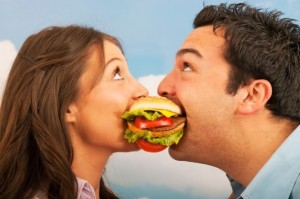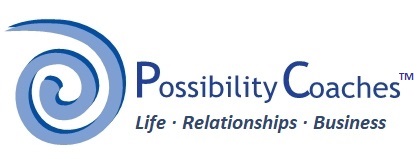Are You an Emotional Eater? Does poor nutrition contribute to your eating behavior? Is the current quest for nutrition information regarding fast food, like McDonalds, a quest for knowledge or a reason to justify poor eating habits?

Through the experiences of my own physical and personal transformations over my adult lifetime, and as a Life Coach to hundreds of individuals, I have learned that one key factor, if unchecked, can control one’s entire life, and that key factor is addictive behavior.
Now, I am openly admitting that up until a few years ago I was an emotional eater. When I became aware of this I was stunned to learn how I used food, specifically any food that contained sugar, as a way to feel good.
 For anyone who knows me this may be surprising. Up until several years ago, I spent the better part of twenty plus years bodybuilding and keeping myself physically fit. However, through much of that time I was also ingesting unhealthy foods. I knew and implemented the basics of good nutrition like eating five or six small, balanced meals per day; yet, when it came to my sugar, specifically anything chocolate, I would not be denied.
For anyone who knows me this may be surprising. Up until several years ago, I spent the better part of twenty plus years bodybuilding and keeping myself physically fit. However, through much of that time I was also ingesting unhealthy foods. I knew and implemented the basics of good nutrition like eating five or six small, balanced meals per day; yet, when it came to my sugar, specifically anything chocolate, I would not be denied.
Despite the overindulging and addiction to sugar, it was my fixation with my body coupled with my neurotic perfectionism that kept me looking good. I never once in those days put ‘two and two’ together that my sugar intake was directly related to my lack of emotional well-being.
From my own personal journey and relationship with food, and coaching clients individually and in groups, I conclude that almost all of us are, in varying degrees, emotional eaters.
Just look at people in the spotlight. Whenever we are given the opportunity to hear celebrities up-close and personal tell their stories about why they accumulated so much body weight, the inevitable conclusion by all of them was that the additional pounds were the result of some emotional distress.
I have heard this very same rendition repeated countless times by such noted individuals as Oprah, Kirstie Alley, Valerie Bertinelli, and Marie Osmond. They were, and in some cases, still are emotional eaters.
 So, who and what is an emotional eater? An emotional eater is anyone who reaches for and consumes food for purposes of easing some kind of emotional pain or discord. We also like to mask this emotional pain and discord under the term of stress! The food, therefore, serves some purpose to lull the eater into easing the pain or discord and creating a temporary state of what appears to be positive well-being. This is of course a false state of well-being that masks pain. Only eating more food can sustain and replicate that feeling. This is how an addiction is born. It becomes a vicious cycle. Unchecked, the results become physically apparent: obesity and all the related diseases of the body that are currently and unnecessarily plaguing so many Americans.
So, who and what is an emotional eater? An emotional eater is anyone who reaches for and consumes food for purposes of easing some kind of emotional pain or discord. We also like to mask this emotional pain and discord under the term of stress! The food, therefore, serves some purpose to lull the eater into easing the pain or discord and creating a temporary state of what appears to be positive well-being. This is of course a false state of well-being that masks pain. Only eating more food can sustain and replicate that feeling. This is how an addiction is born. It becomes a vicious cycle. Unchecked, the results become physically apparent: obesity and all the related diseases of the body that are currently and unnecessarily plaguing so many Americans.
If emotional pain creates emotional eating which then creates the additional weight, we have in our grasps the solution to the weight gain epidemic. This is why so-called weight loss programs and diets do not work over the long term. How many people do you know go on diets, buy prepackaged food plans like Nutrisystem, or go to weekly meetings like Weight Watchers, lose the weight, only to gain it back and then some a year later? Why did this happen? Because, like so many plans or programs, nutritional or otherwise, they never address the root cause of the symptom or weight gain.
The root cause as I wrote earlier, is negative emotions associated with unresolved painful issues from the past. Negative emotions are the result of negative thoughts, beliefs and experiences that we relive in our minds over and over again. Food, because it is easily accessible to most Americans, becomes the drug that can temporarily stifle those ‘bad’ feelings and emotions that arise from negative self-talk.
 It is this ease of accessibility of food, specifically fast food with our busy, busy, chaotic society, that has become the main resource for the American emotional eater. He or she easily seeks out McDonalds (or something dangerously similar). Fast food is quick, relatively inexpensive, and contains all the toxic components necessary to satisfy and minimize the needs of the compulsive, emotional eater. Also, in recent years, take-out has become increasingly popular however, do you know what’s in the food you are ordering?
It is this ease of accessibility of food, specifically fast food with our busy, busy, chaotic society, that has become the main resource for the American emotional eater. He or she easily seeks out McDonalds (or something dangerously similar). Fast food is quick, relatively inexpensive, and contains all the toxic components necessary to satisfy and minimize the needs of the compulsive, emotional eater. Also, in recent years, take-out has become increasingly popular however, do you know what’s in the food you are ordering?
McDonalds nutrition (now that’s an oxymoron like ‘big shrimp’) provides emotional comfort, nurturing, as well as physical and emotional padding by supplying high levels of saturated fat, sodium, and simple carbohydrates that covert to sugar, as the food selections for its’ consumers.
People who eat these kinds of foods are able to easily stuff down their emotions and never have to deal with them. Many times finding themselves at the fast food drive-through without even knowing how they got there. This, I know, has become the dangerous cycle we are witnessing and ultimately leading to the demise of a once relatively healthy nation.
I once heard a mentor of mine say that if: the ‘powers that be’ can keep a society addicted to fast food, sugar, and keep them in fear, unhealthy, and in financial debt, they can control them. Perhaps that’s a subject for another blog at another time.
Let’s shift gears and focus on solutions to this addiction. Like any addiction, I believe the focus should not be on the type of addiction itself, but rather on the internal dialogue that moves you or someone you know toward food as a drug. You may have heard the saying: it’s not what you are eating, it’s what’s eating you!
No matter the addiction: be it food, alcohol, cigarettes, the process of creating a solution and ending the pull toward, and the desire or craving for a substance of any kind is this: to be ready, willing and able to connect the addictive thoughts, feelings and emotions associated with the addictive behavior.
If you are an emotional eater and are ready to end the addiction, then read on. Once you are open to this process, begin to observe yourself and how you operate around and with food. Learn about your relationship with food. Do you eat to live, fuel your body and sustain your natural well-being? Or do you live to eat just for the purpose of burying your emotions and comfort yourself because you always feel uncomfortable? Does that extra weight you carry create a protective padding that gives you a false feeling of safety and protection from what you truly emotionally fear?
Chris and I have assisted a great many people with this process and we have developed some really easy and effective tools to begin the process of ending an addictive dependency on food, especially unhealthy, toxic food.
Tip #1: Put a note on your refrigerator written on an 8 1/2 x 11 paper that says Why am I about to open this door? Am I really hungry or am I avoiding some feeling or emotion? This tip works by awakening you to becoming aware of why you are going to the frig. If you are able to not open the door (and I know you are) , proceed to the next tip.
Tip #2: Walk away from the refrigerator and write down (preferably in a journal) how you are feeling right now. What are your thoughts? What are you fearful of? What’s really bothering you? Be open and willing to be there for you and share your emotions with yourself. This will assist you to uncover the link between your hidden thoughts about food and what you may be feeling on a deeper level. This level of awareness begins the healing process.
Tip #3: If you are ready and willing, open yourself to moving forward and releasing the mindset patterns that lead you to emotional eating. Seek guidance from a friend, mentor, life coach, or health care professional.
Understand, that you never want to lose weight, because what you lose will always find its’ way back to you.
The goal here is to do as I have done. Through the process of emotional healing, I released the thoughts associated with emotional pain that attracted the weight and cravings to me. And I know you can do the same!
Enjoy healthy foods for their nutritional value and for the shear pleasure of an eating experience. Without any emotional attachment to food, I guarantee you will experience a new, healthier, more vital, and fit you!
We can assist and support you along your journey to a healthy life style. Contact us for an introductory session.
Written by Jon Satin
Jon Satin and Chris Pattay – The Possibility Coaches™
©Possibility Coaches, LLC
